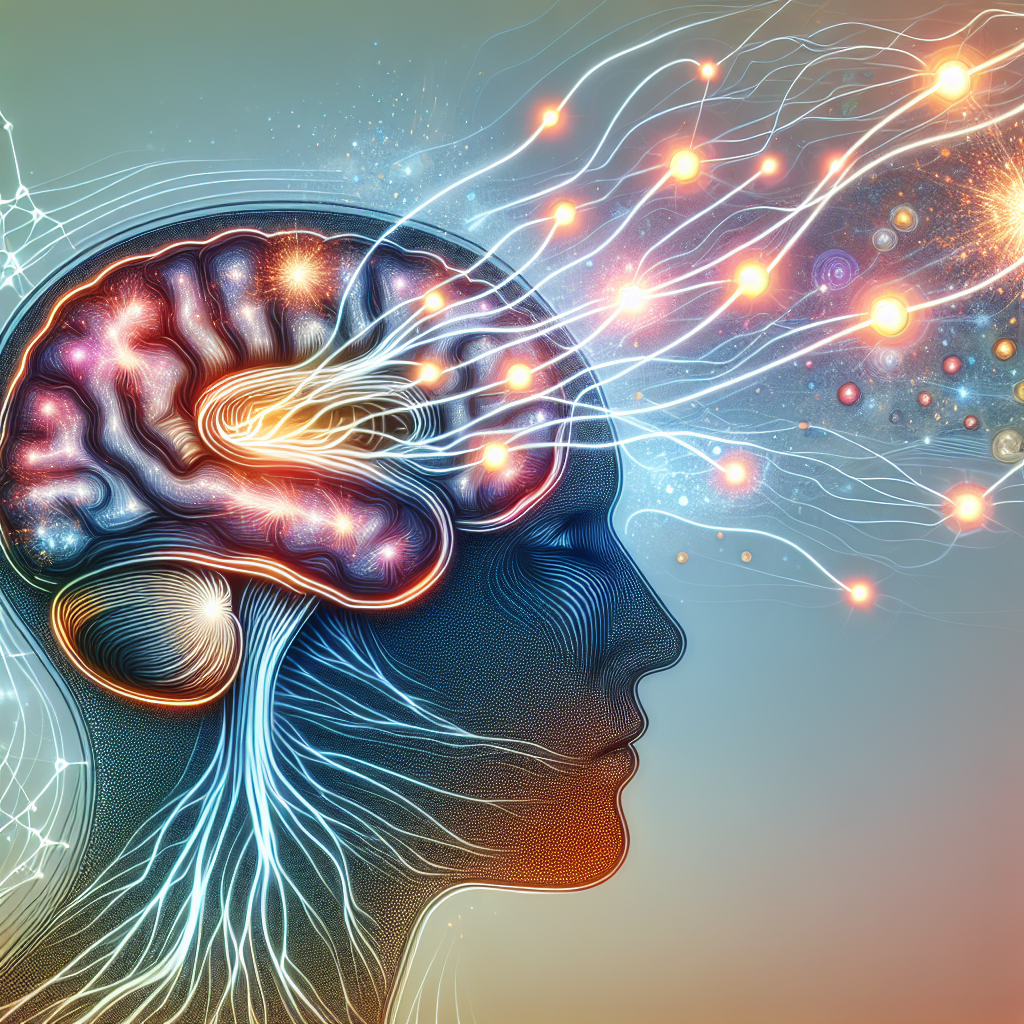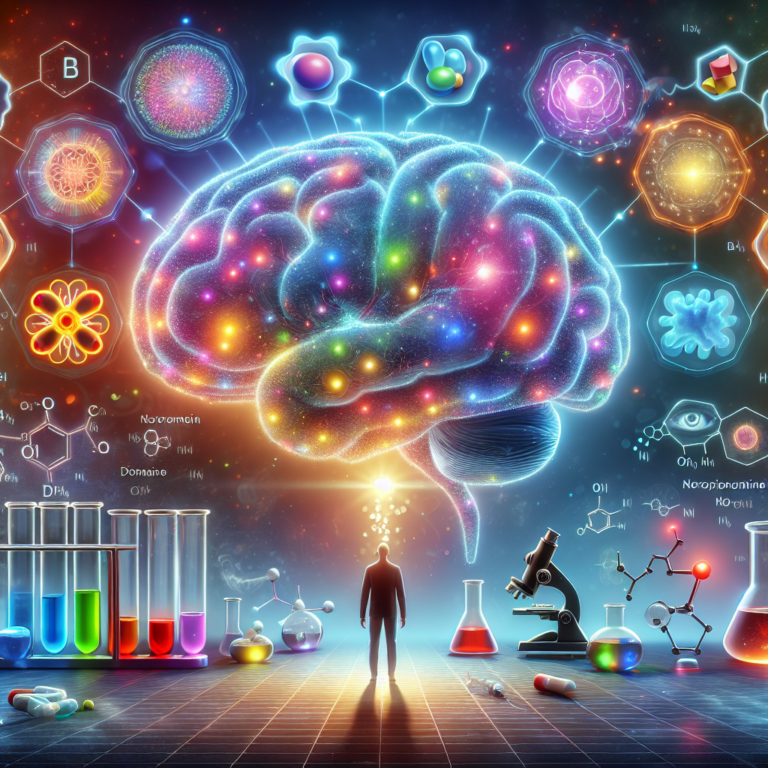
Introduction
Imagine your brain as a finely tuned engine. Every time you think, learn, or remember, it’s like revving up this powerful machine. The fuel for this engine? Neurotransmitters—the chemical messengers that play a pivotal role in cognitive function. Understanding the intricate dance of neurotransmitters can unlock new potentials in our daily mental performance.
In today’s fast-paced world, cognitive enhancement isn’t merely a luxury; it’s a necessity. From students striving for academic excellence to professionals chasing creative breakthroughs, the quest for cognitive optimization has taken center stage. This article, "Revving Up Your Brain: The Role of Neurotransmitters in Cognitive Function," serves as your comprehensive guide to understanding how these crucial molecules can spark new life into your mind.
The Science Behind Neurotransmitters
What are Neurotransmitters?
Neurotransmitters are chemical substances that transmit signals across synapses from one neuron to another. This signaling is essential for numerous brain functions, including mood regulation, memory, and overall cognition. Major neurotransmitters include:
- Dopamine: Often termed the "feel-good" neurotransmitter, it’s crucial for motivation, reward, and happiness.
- Serotonin: Known for its role in mood stabilization, it also influences learning and memory.
- Acetylcholine: Vital for attention and memory, it facilitates communication between neurons.
- GABA (Gamma-Aminobutyric Acid): Acts as the brain’s primary inhibitory neurotransmitter, contributing to relaxation and stress reduction.
Table 1: Major Neurotransmitters and Their Functions
| Neurotransmitter | Function | Impact on Cognition |
|---|---|---|
| Dopamine | Motivation, reward, and pleasure | Boosts creativity and focus |
| Serotonin | Mood regulation | Enhances memory retention |
| Acetylcholine | Attention and learning | Improves information processing |
| GABA | Inhibitory effects, anxiety reduction | Promotes relaxation, aiding concentration |
The Mechanisms of Action
Neurotransmitters operate through complex mechanisms. When a neuron is stimulated, neurotransmitters are released and bind to specific receptors on neighboring neurons. This process can either excite (depolarize) or inhibit (hyperpolarize) the target neuron, effectively regulating the brain’s electrical activity. The balance of excitatory and inhibitory signals is crucial for optimal cognitive function.
Cognitive Functions Influenced by Neurotransmitters
To truly appreciate how revving up your brain works, we need to explore various cognitive domains influenced by neurotransmitters.
Memory and Learning
Memory formation requires a delicate balance of neurotransmitters. Studies show that acetylcholine is essential for encoding and retrieving memories. For example, research conducted by the University of California demonstrated that enhancing acetylcholine receptors could significantly improve memory retention in older adults.
Case Study: Improving Memory in the Elderly
A group of elderly participants underwent a regimen involving acetylcholine precursors. Researchers reported a marked improvement in cognitive tests, emphasizing the impact of neurotransmitter optimization. This case highlights the importance of addressing neurotransmitter deficiency for improved cognitive health, underscoring the premise of "Revving Up Your Brain: The Role of Neurotransmitters in Cognitive Function."
Mood Regulation
Dopamine and serotonin are integral to emotional well-being. Low levels of these neurotransmitters are linked to disorders like depression and anxiety, impacting overall cognitive function. Enhancement of serotonin through lifestyle changes—such as exercise and diet—has shown promise in alleviating mood-related cognitive setbacks.
Case Study: Exercise and Neurotransmitter Levels
A clinical trial observed the effects of a structured exercise program on serotonin levels in participants with mild depression. Results indicated significant mood enhancement and improved cognitive tests post-exercise, exemplifying how lifestyle choices can enhance neurotransmitter action.
Attention and Focus
Acetylcholine is the significant player when it comes to attention. Inattention and cognitive drift can often be mitigated by boosting acetylcholine levels. Moreover, it’s worth noting that dopamine’s role in reward motivation can also reinforce focused behavior.
Case Study: ADHD and Cognitive Enhancement
Recent therapeutic interventions targeting dopamine and acetylcholine levels in children with ADHD have shown remarkable results. After treatment with a combination of behavioral therapy and nutritional supplementation, many children displayed improved attention spans and academic performance, supporting the idea that "Revving Up Your Brain: The Role of Neurotransmitters in Cognitive Function" can address neurodevelopmental challenges.
Enhancing Neurotransmitter Function
Understanding how to optimize neurotransmitter levels can transform cognitive capabilities. Here are actionable strategies:
Nutritional Strategies
Certain foods are known to enhance neurotransmitter function. To rev up your brain:
- Incorporate Omega-3 Fatty Acids: Found in fish like salmon, they support dopamine and serotonin synthesis.
- Consume Protein-Rich Foods: Proteins contain amino acids, the building blocks of neurotransmitters.
- Include Fermented Foods: Gut health influences neurotransmitter production, particularly serotonin.
Lifestyle Adjustments
Regular physical activity can positively influence neurotransmitter levels. Exercise increases endorphin release, boosts dopamine, and enhances brain-derived neurotrophic factor (BDNF), promoting neuronal growth.
Table 2: Lifestyle Changes and Neurotransmitter Effects
| Lifestyle Change | Neurotransmitter Affected | Effect on Cognition |
|---|---|---|
| Regular exercise | Dopamine, Serotonin | Enhanced mood and focus |
| Balanced diet | Serotonin, Acetylcholine | Improved memory and learning |
| Mindfulness meditation | GABA, Serotonin | Reduced anxiety, improved attention |
Supplementation
Supplements like omega-3 fatty acids, L-tyrosine (precursor to dopamine), and St. John’s Wort (for serotonin regulation) can be beneficial. However, always consult healthcare professionals before beginning any new supplementation.
Neurotransmitter-Boosting Technology
In recent years, technology has emerged to assist with cognitive enhancement. Neurofeedback and transcranial magnetic stimulation (TMS) can modulate neurotransmitter systems.
The Future of Cognitive Enhancement
As research progresses, advanced interventions such as brainwave entrainment and neuromodulation are becoming more widespread. These approaches aim to stimulate neurotransmitter production, promising revolutionary advances in cognitive function.
Conclusion
In conclusion, revving up your brain through an understanding of the role of neurotransmitters is not just an academic pursuit but a real-world opportunity for cognitive enhancement. Whether you’re a student, a professional, or simply someone looking to improve your mental agility, recognizing and optimizing your neurotransmitter levels holds significant potential.
Incorporate nutritional strategies, lifestyle changes, and even technological advancements to enhance your cognitive abilities. Remember, it’s never too late to prioritize your brain health. Start today, and you’ll be on your way to achieving greater cognitive heights than you ever thought possible.
FAQs
1. What are neurotransmitters, and why are they important?
Neurotransmitters are chemical messengers responsible for transmitting signals in the brain, playing crucial roles in mood, memory, and overall cognitive function.
2. How can I naturally boost my neurotransmitter levels?
Regular exercise, a healthy diet rich in amino acids, Omega-3 fatty acids, and fermented foods, as well as mindfulness practices can enhance neurotransmitter function.
3. Are there risks to taking neurotransmitter-boosting supplements?
While some supplements can be beneficial, it is essential to consult healthcare professionals to avoid potential side effects or interactions with medications.
4. Can neurotransmitters influence my mood?
Yes, neurotransmitters like serotonin and dopamine directly impact your mood, with imbalances linked to conditions like depression and anxiety.
5. Is enhancing neurotransmitter levels effective for cognitive function?
Yes, studies have shown that boosting neurotransmitter levels can lead to improvements in memory, attention, and overall cognitive abilities.
By focusing on enhancing neurotransmitter function, you can take charge of your cognitive health. As you embark on this journey, you’ll find that a powerful mind is not just the result of natural ability but also a consequence of well-tuned neurochemistry.















